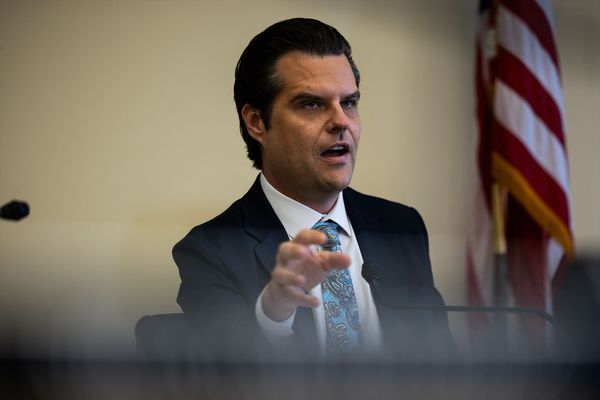
Paris (AFP) - Mathieu van der Poel's triumph at Paris-Roubaix on Sunday is further confirmation of the stranglehold six cycling superstars have on the sport, which is basking in a new golden age as they sweep aside everyone in their path.
One needs to go back decades to find such a profusion of talent that sparkles from February to October, leaving measly crumbs as a consolation for the rest of the pack.
There have been exceptional cyclists since the eras of Belgian legend Eddy Merckx and France's Bernard Hinault -- but this is the first time there have been so many battling for the top honours and throughout the season.
"Mathieu is no alien.He's human.He's just a super strong rider," said Jasper Philipsen, second Sunday behind his leader Van der Poel and ahead of Wout Van Aert, another member of the dominant sextet.
"These guys have something extra," added the Belgian sprinter.
Rivals were bemoaning the same thing on the Tour of the Basque Country, beaten into submission by Denmark's 2022 Tour de France champion Jonas Vingegaard who won the general classification and half of the six stages to bring his record to eight victories since the start of the season.
A week earlier it was two-time Tour de France champion Tadej Pogacar, maybe the mightiest of all of them, who shone.
The 24-year-old became the first Tour de France winner since Merckx in 1976 to also win the one day Classic Tour of Flanders, after having already triumphed on the Tour of Andalusia and Paris-Nice this campaign.
The Slovenian has already racked up 10 wins in 2023.
His compatriot Primoz Roglic has seven victories, including two general classifications, the Tirreno-Adriatico and the Tour of Catalonia.
Not forgetting the sixth element, Belgium's road race world champion Remco Evenepoel, who currently has just the three wins, including the UAE Tour, as he readies for the Giro.
'Full gas'
Between them, they have won all the most important races of the year so far and it is no longer far-fetched that one of them will emulate Merckx, the only cyclist in history to have won the three Grand Tours and the five Monuments.
"There are a few riders who are really above the pack, who kind of do what they want.As soon as they start, all we can do is chase," says AG2R-Citroen's Franck Bonnamour.
Gone are the old days of defensive cycling where success came by choking the life out of a race.
The races are now somewhat wild -- "it was crazy, we raced all day like juniors", Van der Poel said in Roubaix.
Never had the Tour of Flanders and Paris-Roubaix (46.841 km/h) been raced so fast.
"From 100km from the finish, it was full gas", said the Swiss rider Stefan Kung, fifth after having "given everything" but "completely emptied at the end".
To explain these dizzying heights of accomplishment, the cyclists refer to increasingly efficient bikes, progress in nutrition, altitude courses and optimised training.
"Cycling has become very professional.All the cursors are pushed to the maximum.Before, it was simpler, we rode the bike during the day and we ate pasta in the evening," summarises the German veteran Simon Geschke, who finds it hard "to imagine that the level could go up again".
In the meantime, the show goes on.
At Liege-Bastogne-Liege at the end of April, where a Pogacar-Evenepoel duel is expected, and at the Giro in May, where Evenepoel and Roglic will cross swords.
And, of course, on the Tour de France (July 1-23), the ultimate test of this enthralling season.







